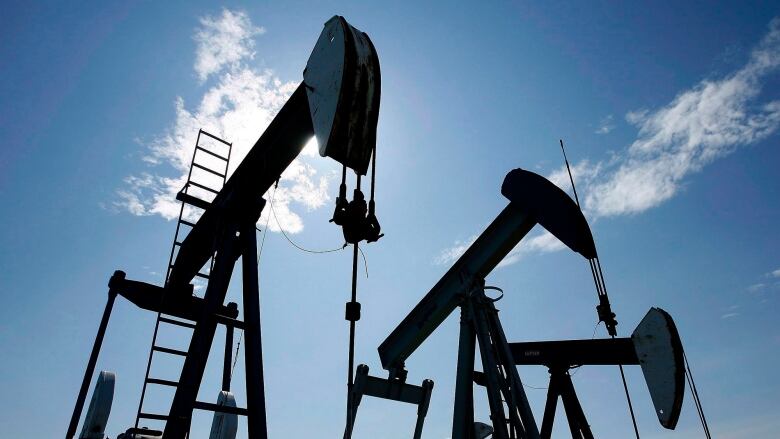Parliamentary budget officer sees $48 oil creating small deficit
Analysis weighs impact of lower oil prices on projected federal surpluses through 2019-2020

Parliament's budget watchdog projects the federal government could see its $3-billion contingency fund dissipate and run a $400-million deficit in 2015-16 if oil prices stay at an average of $48 a barrel.
But Jean-Denis Frechette says, with some minor adjustments, the government would still be in a position to balance the books in its upcoming budget.
"It may not be that difficult," Frechette said today. "They have other possibilities. They have other sources of revenue."
- Middle-class families earn up to $120K a year, feds say
- Tom Mulcair's NDP to propose tax relief for small businesses, manufacturers
- Joe Oliver should provide 'reality check' on nation's finances, NDP says
- More CBC News coverage of the run up to federal budget 2015
The Parliamentary Budget Office suggests, for example, the federal government could sell federal assets or delay spending on certain projects to avoid running up a deficit.
The watchdog was asked by Liberal MP John McKay to analyze the impact of lower oil prices on projected federal surpluses through 2019-20.
The projections work through the numbers for two scenarios:
- West Texas Intermediate (WTI) stays at its recent price of $48 a barrel through the entire time period.
- WTI sits at an average of $51 for 2015 and then rises gradually to $81 in 2019.
In the rosier scenario, the analysis suggests the books can show a small surplus of $700 million, assuming the contingency fund is tapped.
Mobile users, view a CP graphic on the impact of oil prices here
"The path for oil prices over the next five years is uncertain," the report from Jean-Denis Frechette's office cautions.
If something resembling the first scenario comes to pass, the PBO estimates a price of $48 a barrel would reduce federal budgetary revenues by approximately $7.6 billion annually, on average, 2015‐16 to 2019‐20.
Overall, the federal budgetary balance would be reduced by $4.8 billion annually, on average, over 2015‐16 to 2019‐20.
Estimates don't factor in declining GDP
The impact across Canada's economy would result in lower household incomes and corporate profits, the report says, which would reduce the federal government's personal and corporate income tax revenues.
But lower prices also reduce the government's expenses when it purchases goods and services, partially offsetting the lost revenue.
Spending on programs that are indexed to inflation — elderly benefit payments and the Canada child tax benefit, for example — would be lower. Spending that's tied directly to growth in nominal GDP, like transfers to other levels of government, would also be lower.
The PBO stresses, however, that the impacts of lower oil prices considered in its two scenarios do not include impacts from Canada's lower real GDP that would likely materialize.
"As such, the fiscal impacts [in absolute terms] should be viewed as lower bound estimates," the report concludes.
Last week, the Bank of Canada scaled back its forecast for GDP growth, attributing low oil prices in its decision to cut the key overnight lending rate by a quarter of a percentage point.
(PDF KB)
(Text KB)CBC is not responsible for 3rd party content
with files from Tom Parry